Welcome to the ultimate guide on diet and nutrition, where we unravel the mysteries of food and its impact on our health and well-being. In this comprehensive resource, we delve into the science behind diet and nutrition, exploring the vital role they play in fueling our bodies, supporting our immune systems, and nourishing our minds.
From the fundamentals of macronutrients and micronutrients to the latest research on dietary trends and fads, we leave no stone unturned in our quest for nutritional wisdom. Whether you’re seeking to optimize your athletic performance, manage a chronic health condition, or simply cultivate a healthier relationship with food, our SEO-optimized guide offers insights, tips, and evidence-based advice to help you achieve your goals.http://healthlikeaboss.com
Join us as we explore the complexities of diet and nutrition in the modern world, from deciphering food labels and navigating the grocery store aisles to debunking common myths and misconceptions about nutrition. With practical tips for meal planning, recipe ideas, and mindful eating practices, we empower you to make informed choices that support your health and vitality.
So whether you’re a seasoned health enthusiast or a curious beginner, let’s embark on a journey towards greater health, happiness, and vitality through the power of diet and nutrition. Together, we’ll unlock the secrets to a nourished life—one delicious bite at a time.
Diet and nutrition are foundational pillars of our overall health and well-being. What we eat directly impacts how our bodies function, and a well-balanced diet provides the essential nutrients necessary for growth, repair, and vitality. In this comprehensive guide, we will explore the critical aspects of diet and nutrition, debunk common myths, and provide practical tips to help you make informed choices for your health. Whether you are seeking weight management, improved energy levels, or a stronger immune system, understanding the principles of diet and nutrition is the first step towards achieving your health goals.
The Importance of a Balanced Diet
A balanced diet is key to meeting your body’s nutritional needs. It includes a variety of foods from different food groups, ensuring you receive the right balance of macronutrients (carbohydrates, proteins, and fats) and micronutrients (vitamins and minerals). Each nutrient plays a unique role in supporting various bodily functions, from boosting immunity to maintaining healthy bones and organs.
Understanding Macronutrients and Micronutrients
Macronutrients:
- Carbohydrates: The primary source of energy, found in grains, fruits, vegetables, and legumes.
- Proteins: Essential for tissue repair and building, found in meat, fish, dairy, and plant-based sources like beans and tofu.
- Fats: Provide energy, support cell function, and aid in the absorption of fat-soluble vitamins. Healthy fats can be found in nuts, avocados, olive oil, and fatty fish.
Micronutrients:
- Vitamins: Assist in various biochemical processes and are abundant in fruits, vegetables, and whole grains.
- Minerals: Essential for bone health, nerve function, and more, found in foods like leafy greens, nuts, and seeds.
- Debunking Diet and Nutrition Myths
In the vast world of dieting and nutrition, several myths often lead to confusion. We’ll debunk some common misconceptions and separate fact from fiction, helping you make well-informed choices:
Myth: All Fats Are Bad In reality, fats are crucial for a healthy body. It’s important to differentiate between healthy fats (monounsaturated and polyunsaturated fats found in nuts, seeds, and fish) and unhealthy fats (trans fats found in processed foods).
Myth: Carbohydrates Should Be Eliminated for Weight Loss Carbohydrates are essential for energy and brain function. The key is choosing whole grains, fruits, and vegetables over refined carbs like sugary snacks and white bread.
Myth: Skipping Meals Helps in Weight Loss Skipping meals can actually slow down your metabolism and lead to overeating later. Regular, balanced meals are important for maintaining energy levels and supporting overall health.
Customizing Your Diet to Your Health Goals
Your nutritional needs may vary based on factors such as age, gender, activity level, and health conditions. Customizing your diet to meet these unique requirements can optimize your health and well-being. For instance:
Weight Management: Understanding caloric needs and balancing nutrients can help achieve weight loss or maintenance goals.
Athletes and Active Individuals: Ensuring adequate protein intake and proper hydration is crucial for performance and recovery.
Special Diets: Individuals with specific dietary requirements, such as vegetarians or those with food allergies, need to pay attention to nutrient sources to avoid deficiencies.
Incorporating Superfoods for Optimal Nutrition
Superfoods are nutrient powerhouses that offer exceptional health benefits. They are rich in vitamins, minerals, antioxidants, and phytochemicals. Some popular superfoods include:
Berries: Blueberries, strawberries, and raspberries are packed with antioxidants that protect cells from damage.
Leafy Greens: Spinach, kale, and Swiss chard provide essential vitamins and minerals like vitamin K and iron.
Salmon: A fatty fish rich in omega-3 fatty acids that support heart health and brain function.
Chia Seeds: High in fiber, omega-3s, and protein, chia seeds are a versatile superfood.
Making Healthier Choices When Dining Out
Eating out doesn’t have to mean sacrificing your nutritional goals. By making informed choices, you can enjoy restaurant meals while still nourishing your body. Some tips include:
Reviewing Menus in Advance: Check the menu online and choose healthier options before arriving at the restaurant.
Controlling Portions: Opt for smaller portions or share a dish with a friend to avoid overeating.
Choosing Healthier Cooking Methods: Grilled, roasted, or steamed options are generally healthier than fried or heavily sauced dishes.
Navigating Food Labels for Informed Choices
Food labels provide essential information about the nutritional content of packaged foods. Understanding how to interpret them can help you make healthier choices:
Serving Size: Pay attention to the serving size to understand the number of nutrients you’ll consume.
Nutrient Content: Check for the amounts of key nutrients like fats, sugars, sodium, and vitamins.
Ingredients: Avoid products with long lists of artificial additives, preservatives, and added sugars.
Hydration: The Foundation of Good Health
Water is essential for nearly every bodily function, from regulating body temperature to supporting digestion and nutrient absorption. Staying hydrated is vital for overall health and vitality. Aim to drink at least 8 glasses of water daily, and more during hot weather or increased physical activity.

Seeking Professional Guidance
If you have specific health concerns or dietary restrictions, consulting a registered dietitian or nutritionist can provide personalized guidance. They can help design a diet plan tailored to your unique needs and health goals.
Plant-Based Diets
- Examine the benefits of plant-based diets for health, including reduced risk of chronic diseases, weight management, and environmental sustainability.
- Provide guidance on transitioning to a plant-based diet, including tips for incorporating more fruits, vegetables, whole grains, and legumes into your meals.
- Offer delicious and nutritious plant-based recipes, meal ideas, and cooking tips to inspire and support your journey towards a more plant-centered way of eating.
The Gut-Brain Connection
- Explore the emerging field of nutritional psychiatry and its implications for mental health and well-being.
- Discuss the role of the gut microbiome in influencing mood, cognition, and behavior, and how dietary factors can either support or disrupt gut health.
- Offer evidence-based dietary recommendations and lifestyle interventions to support mental health, including probiotics, prebiotics, and anti-inflammatory foods.
Sports Nutrition
- Delve into the principles of sports nutrition, including macronutrient ratios, hydration strategies, and nutrient timing for optimal athletic performance.
- Provide practical guidance on pre- and post-workout nutrition, including what to eat before, during, and after exercise to maximize energy levels, endurance, and recovery.
- Offer tips for athletes and active individuals on how to tailor their diets to meet their specific nutritional needs based on their training goals, sport, and individual physiology.
Mindful Eating
- Explore the concept of mindful eating and its potential benefits for improving digestion, preventing overeating, and enhancing the enjoyment of food.
- Provide mindfulness practices and techniques to help you develop a more conscious and intuitive relationship with food, including mindful eating exercises and meditation.
- Offer practical tips for incorporating mindfulness into your daily eating habits, such as slowing down, savoring each bite, and tuning into hunger and fullness cues.
Nutrition for Healthy Aging
- Discuss the role of diet and nutrition in promoting healthy aging and preventing age-related chronic diseases, such as heart disease, diabetes, and cognitive decline.
- Provide dietary recommendations and lifestyle strategies to support longevity and vitality as you age, including antioxidant-rich foods, omega-3 fatty acids, and regular physical activity.
- Offer tips for addressing common nutritional challenges faced by older adults, such as maintaining muscle mass, bone health, and nutrient absorption.
Frequently Asked Questions (FAQs)
What is the importance of maintaining a balanced diet?
A balanced diet provides essential nutrients that support overall health and well-being. It ensures proper growth, repair, and functioning of the body’s systems.
How can I incorporate more nutrient-dense foods into my diet?
To include more nutrient-dense foods, focus on consuming a variety of fruits, vegetables, whole grains, lean proteins, and healthy fats in your meals.
Are all fats bad for my health?
No, not all fats are bad. Healthy fats, like those found in nuts, avocados, and olive oil, are essential for brain function, heart health, and overall well-being.
Can carbohydrates be a part of a healthy diet?
Yes, carbohydrates are a vital energy source for the body. Choose complex carbohydrates from whole grains, fruits, and vegetables for optimal health.
Can diet and nutrition impact weight management?
Yes, diet and nutrition play a significant role in weight management. Adopting a balanced diet and monitoring calorie intake can support weight loss or maintenance goals.
Conclusion
The world of diet and nutrition is vast and ever-evolving, offering endless opportunities for exploration, discovery, and transformation. Whether you’re seeking to optimize your health, support your athletic performance, or simply cultivate a more mindful and joyful relationship with food, the principles of diet and nutrition serve as a foundation for holistic well-being.
So, here’s to embracing the power of food as medicine, fueling your body with nutrient-dense foods, and savoring each moment at the table. May your journey be filled with abundance, vitality, and joy, and may you find fulfillment in nourishing yourself and those around you. Cheers to your health and happiness!


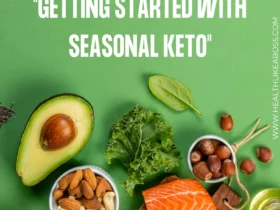

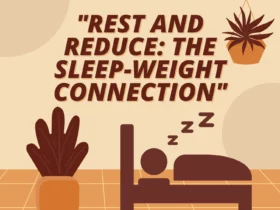




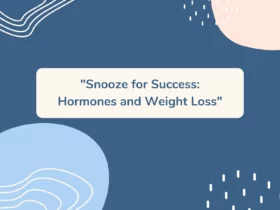
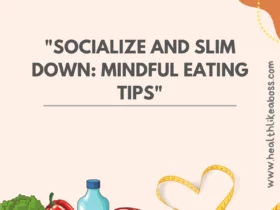

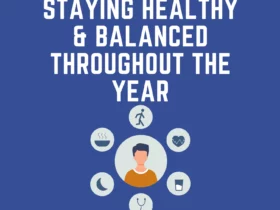

Leave a Reply